Strategic Goals
The City of Overland Park’s formally-adopted strategic goals guide City initiatives, projects, programs and events. The strategic goals are intended to reflect the values of the community and organization.
Each of the four goal areas was inspired by priorities from adopted budgets; supported by data from the community survey; and are consistent with Forward OP, the community’s vision.
Each goal area has high level initiatives which can be linked to action items City staff take, which can then be linked to performance measures to show the City’s progress on those goals.
Each goal includes a list of initiatives and projects related to that goal. Goal area projects are not inclusive of all the City’s projects and priorities but include many items that are of interest to the community.
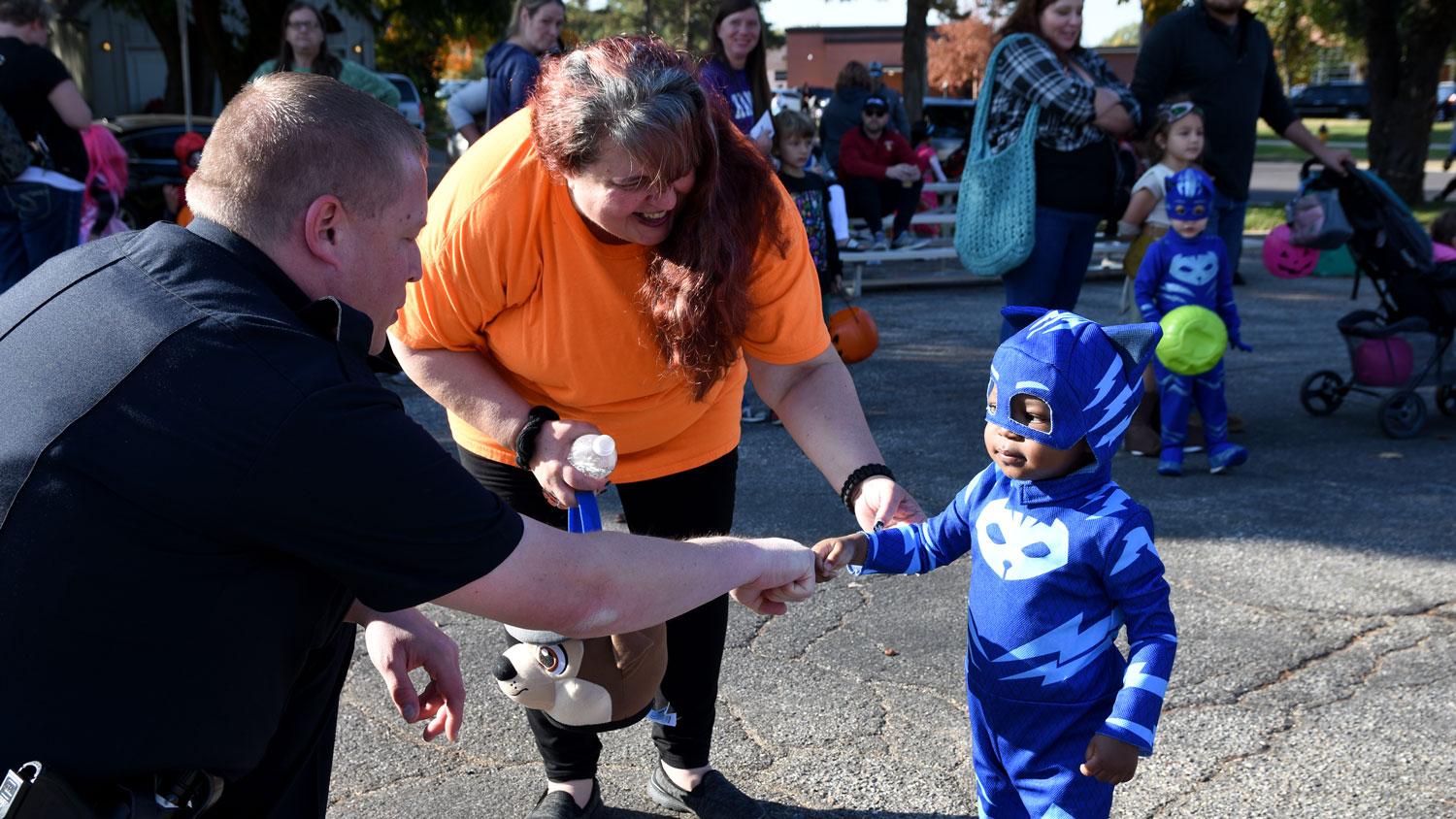
Goal 1: Safe + Healthy Neighborhoods
To create and sustain the protection and security of life and property that allow for freedom of movement, tranquility in the community and peace of mind for the continuance of a high quality of life.
2024-2025 Initiatives
- Attract and retain a diverse, talented and engaged workforce (specific to police and fire departments).
- Focus on responses to mental health related issues (Overland Park Crisis Action Team; Mental Health Advisory Committee recommendations; peer support for employees).
- Pilot partnerships to provide a Behavioral Health specialist in Municipal Court.
- Engage in and continue to promote community policing through the four pillars of Procedural Justice; neutrality, voice, respect and trustworthiness, and fire prevention by expanding community education and building trust with residents.
- Evaluate neighborhood risk factors and implement strategies to address identified needs.
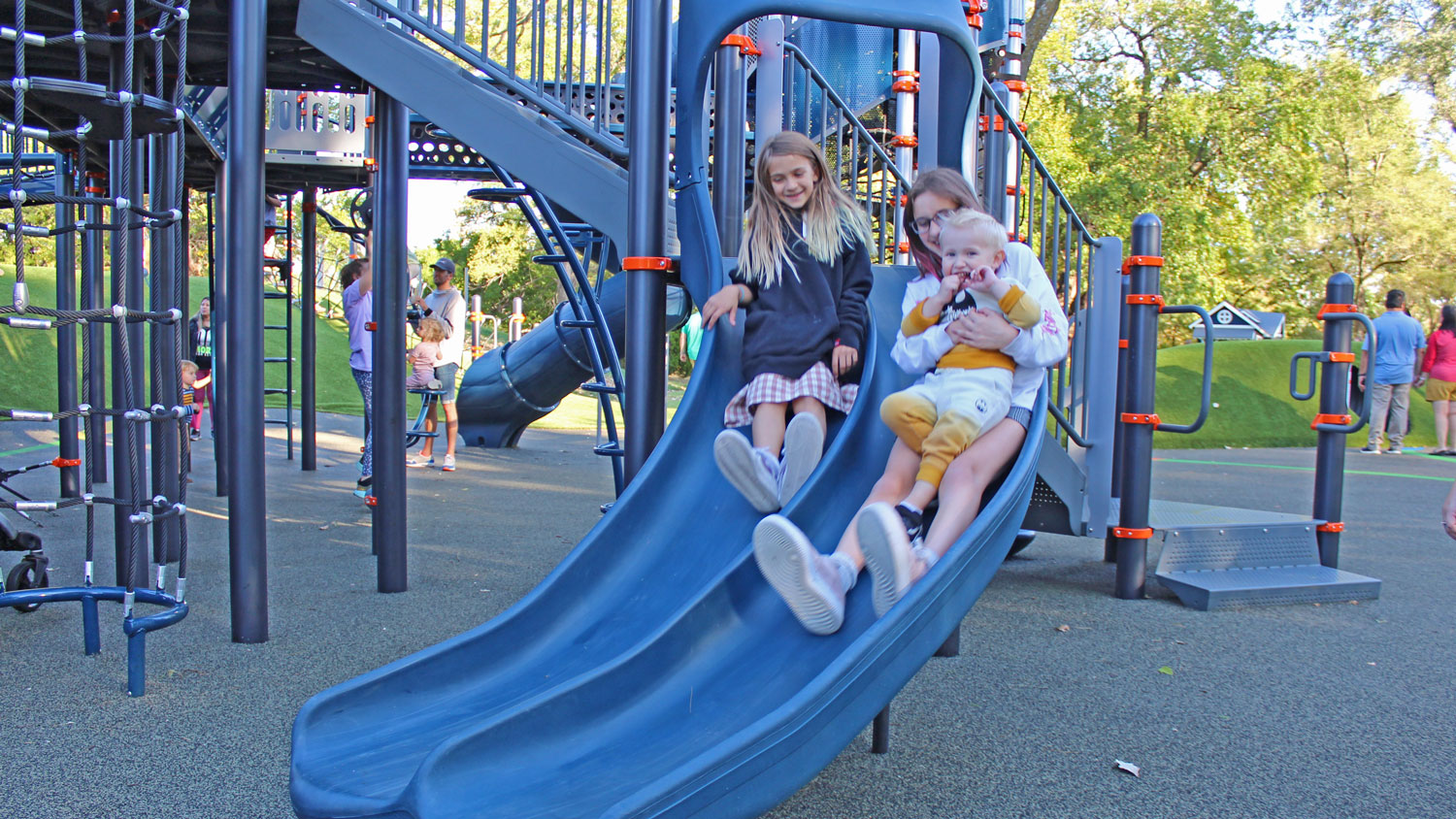
Goal 2: High Quality of Life
To create and sustain the highest quality of life for the residents of Overland Park by seeking the proper and most effective use of land and preservation of natural resources; create safe, attractive spaces that enhance a sense of community; and by facilitating desirable living, working, economic and recreation opportunities for all.
2024-2025 Initiatives
- Update strategic and long-range plans, including the Comprehensive Plan, Parks and Recreation Master Plan, Urban Forest Master Plan and Electric Vehicle Master Plan.
- Create safe, attractive spaces that enhance sense of community.
- Continue preparations for the 2026 World Cup.
- Create an ongoing Quality of Life Dashboard.
- Conduct a Solid Waste and Recycling Study.
- Complete LEED for Cities Certification.
- Update the City’s Unified Development Ordinance.
- Initiate the development of a scope and cost estimate for an update to the Greenway Linkages Plan.
- Initiate the development of a scope and cost estimate for an update to the Safe Bicycle Use Outreach Project.
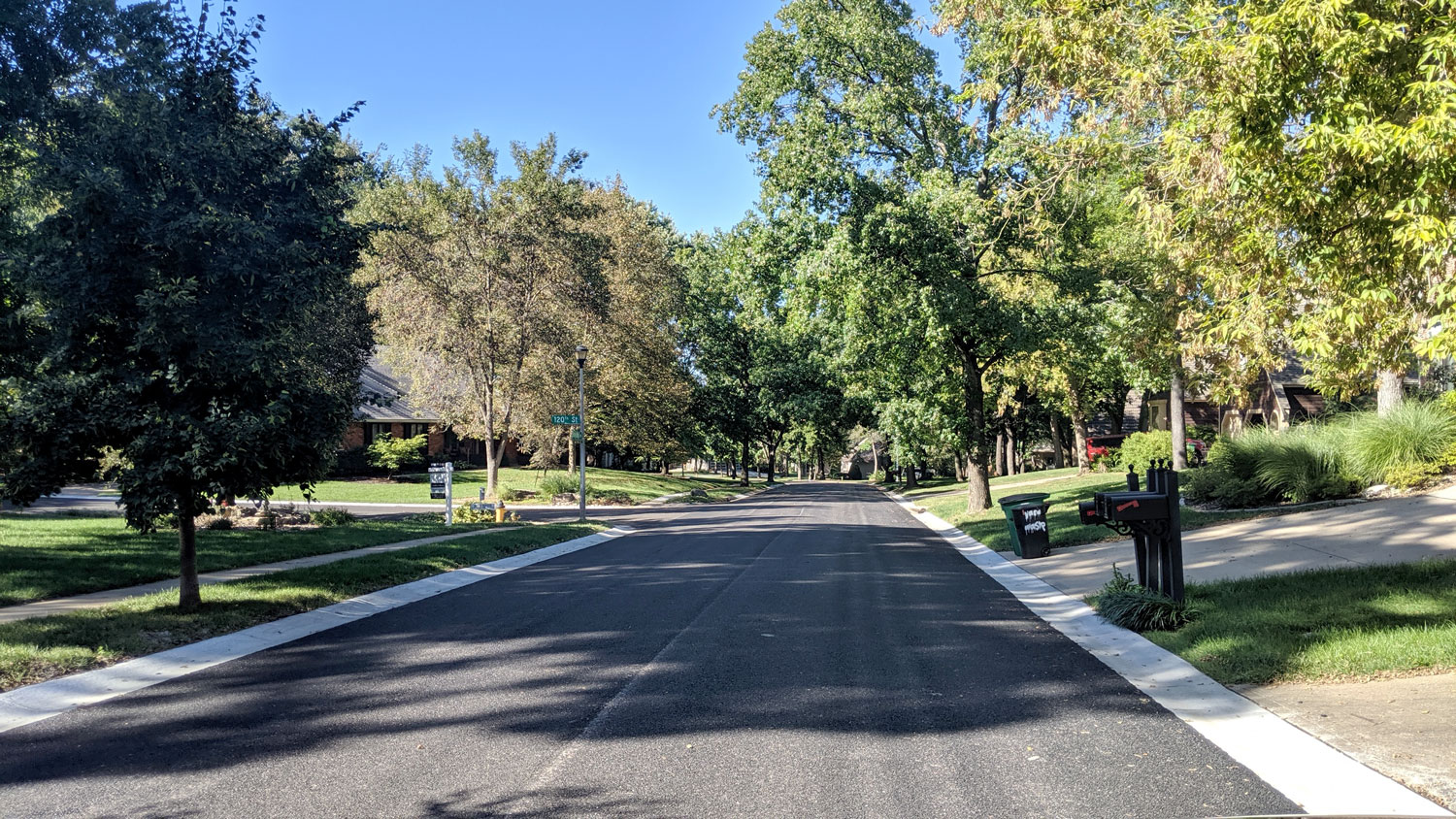
Goal 3: Infrastructure + Mobility
Create and sustain the basic support of residents and visitors to Overland Park to enhance modern activity through the construction and maintenance of the City’s public infrastructure. This infrastructure primarily consists of stormwater, fiber optic and transportation elements that provide for the mobility that serves people of all ages and abilities with strong connectivity and options and provides for the safe movement of stormwater runoff that protects individuals and property and respects the natural environment.
2024-2025 Initiatives
- Execute street, traffic and stormwater infrastructure projects in the Capital Improvement and Annual Maintenance Program.
- Implement IAG recommendations.
- Monitor implementation of a shared small vehicle pilot program with private vendors to provide e-scooters and e-bikes for use within the City right-of-way.
- Begin the College and Metcalf Mobility Enhancements project to provide and enhance active transportation choices along the corridor.
- Complete purchase and installation of an estimated 25 driver feedback signs to enhance road safety and traffic management along with collectors and thoroughfares.
- Begin the development of a Safe Streets for All Action Plan.
- Complete update to the South Overland Park Transportation Plan to assist in the planning of infrastructure improvements south of 159th Street.
- Evaluate or update policies, including the Complete Streets Policy and continue to review the Traffic Calming Policy and Neighborhood Street Reconstruction Program.
- Support a Johnson County study of enhancing transit service on Metcalf Avenue.
- Support a trail of wayfinding study on portions of Indian Creek Trail and Tomahawk Creek Trail.
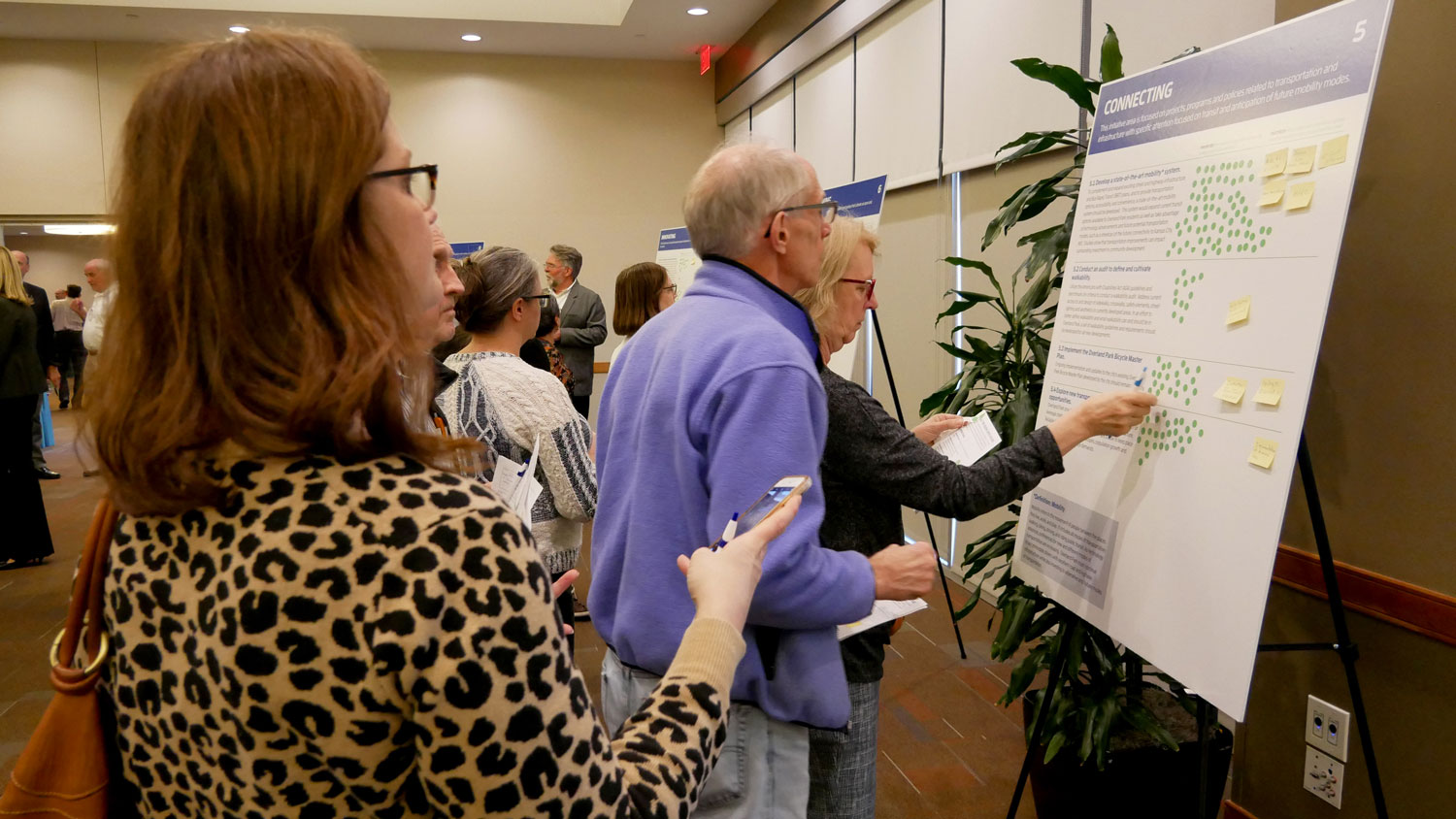
Goal 4: Government Accountability
To create and sustain fiscally responsible City services and improve the public trust by:
- Ensuring sustainable and equitable revenue streams;
- Expanding and attracting business for job creation;
- Collaborating with intergovernmental partners;
- Using technology to be responsive to resident needs; and
- Providing transparency through communications and active engagement opportunities.
2024-2025 Initiatives
- Maintain a responsible and sustainable fiscal position: AAA bond rating.
- Attract and retain a diverse, talented and engaged workforce reflective of the current competitive market.
- Continue strategic cybersecurity and technology investments to safeguard public services.
- Maximize the economic impact of the Overland Park Convention Center.
- Seek federal and state funds to leverage funding streams.
- Consider high-performing building standards for new City facilities.
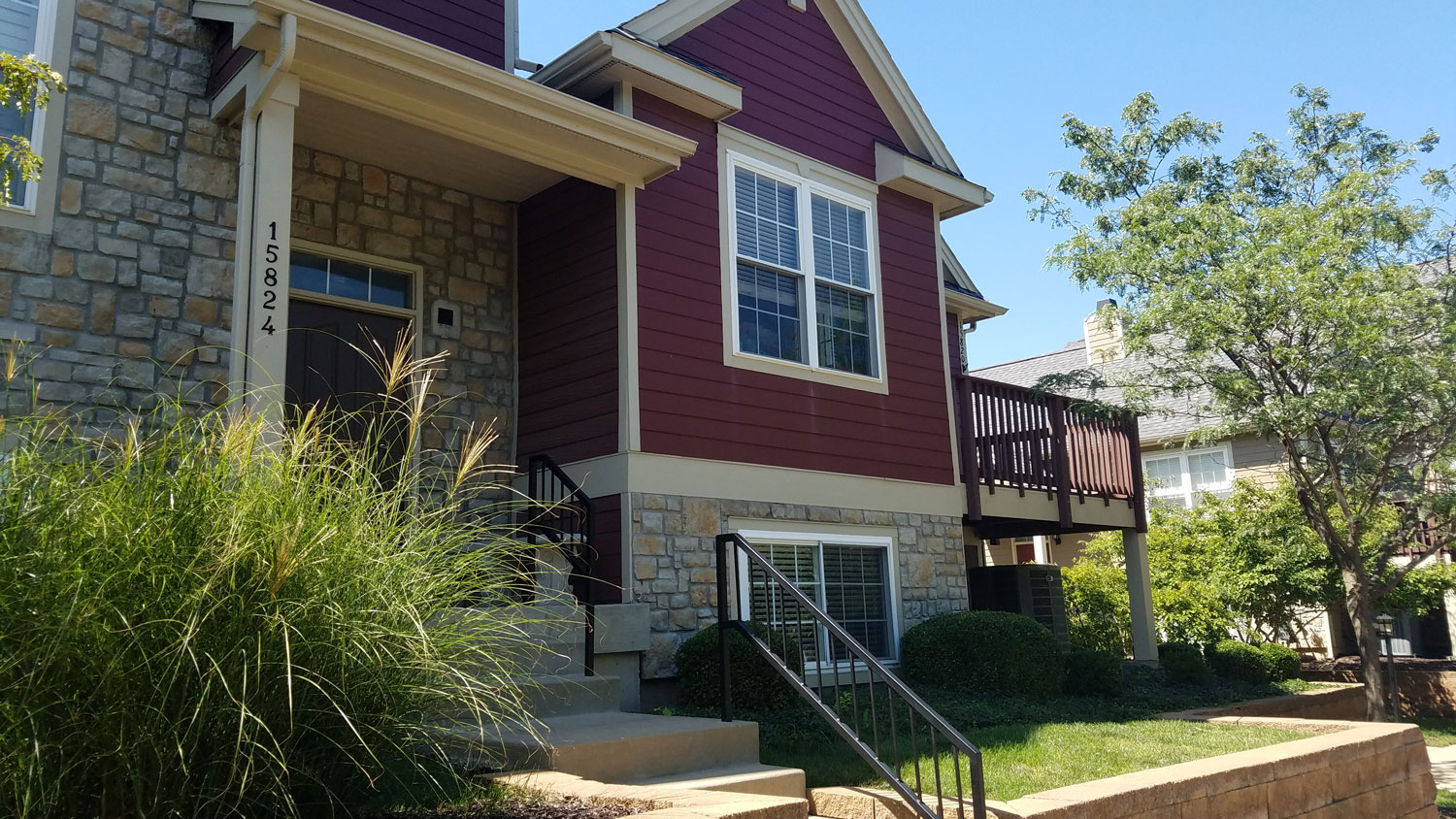
Goal 5: Economic Well-Being and Housing
Encourage growth in local businesses and job centers that help create places and spaces that are attractive to innovative companies and their employees, support the economic advancement of residents, increase entrepreneurship and support the City’s fiscal vitality.
Foster development and maintenance of vibrant neighborhoods with a variety of housing types that offer attractive, attainable and safe housing options for current and future residents.
2024-2025 Initiatives
- Implement a permit-ready housing unit program.
- Evaluate and monitor factors that impact the creation and retention of attainable housing.
- Evaluate options for incentivizing the development of diverse and attainable housing options.
- Revise regulatory standards to remove barriers to infill lots.
- Support various types of financial tools to guide investment in strategic areas.
- Reexamine and align current economic development policies with the strategic investment map.
- Explore the development of a business registration program.
Strategic Frameworks
Strategic frameworks are ideals that wrap around each of the goals and all of the City’s business. They focus on Overland Park being a sustainable, welcoming community.
Sustainability
The City of Overland Park views sustainability as reflected in a simple model that consists of three pillars: environmental sustainability, economic sustainability, and social sustainability. These three pillars are interrelated; sustained community wellbeing is not achievable without addressing all three.
- Environmental Sustainability
Environmental sustainability requires living within the means of our natural resources and working to preserve and improve the natural environment. We must use land, water and energy in a responsible manner that ensures the health of our natural environment and considers the scarcity of the resources we are consuming. This is achieved by adopting policies and programs that preserve, protect and enhance our natural environment to protect future generations. This is an opportunity to foster a resilient community that maintains and protects existing resources.
In 2022 the City Council endorsed the Regional Climate Action Plan and directed staff to prepare a community response through the engagement effort of FrameworkOP. The environmental chapter of FrameworkOP reflects that effort.
Several important takeaways emerged from these multiple rounds of community engagement and an analysis of community trends and current conditions, in particular, creating a better-built environment and protecting the natural environment for future generations. Protecting natural resources, achieving sustainability and climate resilience, and supporting the health of residents and workers are important to the Overland Park community.- Economic Sustainability
Economic sustainability means that we make decisions in an economically and fiscally responsible way. The success of the local economy and businesses allows the City of Overland Park to maintain financial solvency, support infrastructure upgrades and maintenance investments, and continue to provide residents with outstanding public services that ensure a high quality of life. We must consider the health of our local economy and strive to establish an environment that promotes economic innovation, supports the economic advancement of residents, and allows businesses to grow and thrive in the City of Overland Park.
- Social Sustainability
Economic sustainability means that we make decisions in an economically and fiscally responsible way. The success of the local economy and businesses allows the City of Overland Park to maintain financial solvency, support infrastructure upgrades and maintenance investments, and continue to provide residents with outstanding public services that ensure a high quality of life. We must consider the health of our local economy and strive to establish an environment that promotes economic innovation, supports the economic advancement of residents, and allows businesses to grow and thrive in the City of Overland Park.
Welcoming Community + Organization
Inclusion of diverse groups of people and ideas is a management value that will be incorporated into the operations of the City of Overland Park. This is consistent with the emphasis ForwardOP places upon being a “welcoming” community. This lens requires the understanding and integration of the concepts of diversity, equity and inclusion to achieve the ultimate goal of belonging.
These words are commonly used interchangeably. It is essential to differentiate these terms and to create shared meaning in order to achieve mutual understanding.
One of the ways to achieve this is to acknowledge unconscious bias. All humans have biases based on their experiences and viewpoints. Rather than pretending to be all inclusive all the time, we must tap into our vulnerability and openly acknowledge biases— no more claiming color, age or gender blindness. Recognizing unintentional bias helps create learning that moves organizations and communities toward inclusion and environments where all individuals feel they can be authentic and belong.
